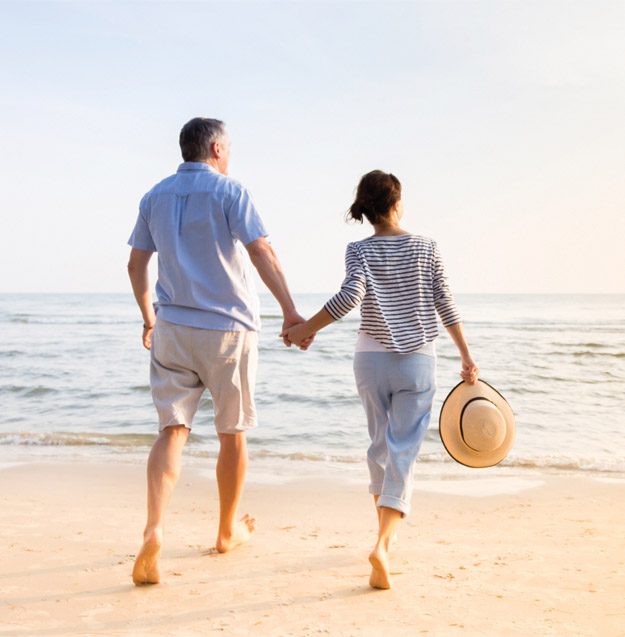By Svetlana Kogan, M.D.
Hot summer is here in full swing. The specifics of our local climate dictate the way we plan out our daily schedules and time outdoors. Smart Floridians know how to avoid the heat strokes and the sunburns, but there are some less well known summer health concerns which I tend to see more of this time of the year – and I wanted to share some of them with you today. In the heat of the summer, people often ask me about the skin issues, like underarm pimples in their armpits. Some of them get red and pretty painful, and bathing does not really make them go away. In many cases, these pimples can actually be boils, which crop up when staphylococcus bacteria infects hair follicles and skin tissue. The underarm area is susceptible to infection due to friction, shaving (which can break skin to allow bacterial entry) and sweat (which encourages bacteria to breed). While boils are more common in people with suppressed immune systems, the painful bumps can also occur in healthy people – especially in the summer, when staph bacteria thrive. The good news is that most boils disappear with home treatment. Just soak a washcloth in warm salt water (add 1 teaspoon of salt to 1 quart of water) and apply to the affected area for 10 minutes three times daily. The boils should rupture and drain within a week, after which you can apply a thin film of antibiotic ointment two to three times daily for several days.

To prevent future boils, wear loose cotton or linen clothing, air condition your workplace, and avoid eating hot spicy foods in the summer. This is especially true for people with rosacea and redness in their skin tone. In fact, for those who are prone to pimples and redness, I recommend drinking less caffeine in the summer, and increasing the use of cooling foods and herbs, such as cucumbers, watermelons, coriander and mint. Also, using a natural antiperspirant without aluminum, parabens or artificial fragrances will help prevent clogging the pores, which will in turn help ward of infections. And keep in mind that sweating is the body’s way to cool off and to get rid of some of the toxins, so you do not want to block this important body’s self-regulation system altogether.
Another common summer complaint I encounter in my medical practice is the searing foot pain in one heel, especially when people step out of bed. The cause of such pain may be plantar fasciitis, inflammation of the thick band of connective tissue on the bottom of your foot that attaches your toes to your heel. The pain is worse in the morning because standing up after resting acutely stretches the inflamed area. Your heels may be part of the problem since they put excess strain on the inflamed tissue. Wearing beach flip-flops and bare foot walking on the beach in the heat exacerbates the problem by increasing the abovementioned heel pressure.
To relieve the pain, consider wearing walking shoes with good arch support or dressier summer shoes with a little heel if you are a guy and slightly higher heel if you are a lady. This will take some of the pressure off the fascia. Icing the area for 15 minutes four times a day can also help, as can simple foot stretches: Gently pull your toes towards your shin until you feel a stretch in your arch. Hold for 10 seconds, then slowly release. Do 10 repetitions three times a day. Another useful exercise is to press and roll your affected foot slowly over the cold water bottle – to massage the painful fascia for 10-15 minutes 2-3 times a day.
An ancient ayurvedic tradition suggests immersing feet into 2 liters of cold sour buttermilk for 20 minutes once a day. To add sourness, add some lemon juice. For prevention, avoid standing in the same spot for prolonged periods of time. Also, as with skin boils, avoid excess intake of hot and spicy foods or junk food. In resistant cases, I recommend using low frequency pulsed electromagnetic fields (PEMF) therapy with biofeedback.
Yet another common summertime malady is a sensitive stomach. People with upset digestive system tend to feel more bloated and have more loose stools in the hotter months of the year. This often has to do with the surge in the serotonin levels as these negatively impact intestinal movement, especially in those people who are predisposed to irritable bowel syndrome (IBS).
To decrease your risk for these symptoms, wear light colors and lightweight fabric as well as a broad-brimmed hat to avoid inappropriate serotonin increase from overheating. Wearing white color helps by reflecting the sunlight and limiting intake of hot beverages and spicy foods will help avoiding the serotonin surge. To alleviate the bloatedness and gassiness, try a good probiotic which has at least 10 different strains and the potency of at least 40 billion colony forming units, once daily for 2-3 weeks. Keep in mind that raw salads which dominate our diet in the summer – can contain gas-producing vegetables, and if you are the type that is sensitive to cabbage or cauliflower – modify your salads accordingly. Here is too a cool and healthy summer season!
Svetlana Kogan, M.D. is a Board Certified Medical Doctor with 20 years of experience. She has appeared as a health expert on FOX, ABC, CBS, and NBC prime time TV, and has authored hundreds of publications for internet and print. She just moved her Concierge Internal Medicine practice from Manhattan NYC to Naples, where her focus is on fusing traditional medicine with holistic approach to illness and prevention.
720 Fifth Ave S, Unit 209
Naples , FL 34102
Phone: (239) 676-6883
www.customlongevity.com









